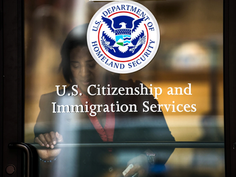When Friendships Fade: Navigating the End of Close Bonds and Embracing New Beginnings
- V. E. K. Madhushani

- Oct 26, 2024
- 6 min read
Updated: Oct 26, 2024
Vithanage Erandi Kawshalya Madhushani Jade Times Staff
V.E.K. Madhushani is a Jadetimes news reporter covering Innovation.

Understanding friendship breakups and finding healthy ways to process, reflect, and move on
Friendships are fundamental to our lives, yet losing a close friend can leave a deep emotional impact that we rarely discuss openly. For many, friendship breakups can be as painful as romantic ones, though society’s language around these endings is less developed. Research on friendship dissolution has gained traction recently, and findings reveal that such losses can deeply affect us emotionally, even when a friendship simply fades rather than ending in conflict.
For people like Grace Vieth, a social psychology researcher at the University of Minnesota, examining the factors behind friendship breakups is essential. “Society has norms for handling romantic breakups, but friendship endings lack such guidance,” Vieth says. This absence of a “script” often leaves people struggling with how to approach and process these losses.
The Evolution of Friendships
As we grow, friendships become a mirror, reflecting who we are and shaping our sense of identity. During adolescence, friends play an increasingly important role in emotional development, serving as primary sources of support outside the family. Adolescents prioritize peer approval and experience friendships as social validation, explains Kaitlin Flannery, a psychology professor at SUNY Cortland.
However, these bonds are fluid. Studies show that many teen friendships shift over time; best friends in the fall may become distant friends by spring. This fluidity continues into adulthood, where life changes, such as moving for college or jobs, naturally challenge the durability of friendships. In such times, friends who share a “growth” mindset viewing relationships as adaptable and resilient are more likely to weather these changes.
Common Causes of Friendship Dissolution
While some friendships fade naturally, others end due to issues like conflict, betrayal, or changing priorities. Research shows that people are more likely to outgrow friendships during major life transitions. For instance, in a study of young adults, the most common reasons for friendship dissolution included increased distance, differing life goals, and conflicts in romantic relationships. Women, in particular, are more likely than men to have friendships based on emotional closeness and shared values, which may heighten the impact of unmet expectations.
Gender differences can also influence how friendships are maintained and why they might end. Studies show that women tend to have closer one on one friendships, while men often socialize in group settings. Women, therefore, may feel more impacted by breaches of trust or loyalty. "[Women] often report feeling more sadness and stress after a friendship breakup compared to men," says Flannery, who adds that the way friendships are structured and nurtured can shape how we feel about their dissolution.
Ending Friendships Thoughtfully
Ending a friendship can be complex, especially when considering the best way to approach it. Some people use "ghosting," which involves gradually withdrawing from a friend without formal closure. Though this tactic may seem easier, it can leave the other person feeling hurt and confused. For those seeking closure, it may be better to communicate openly, respecting both parties’ feelings.
In cases where friendships have become toxic, letting go can be beneficial to mental and emotional well-being. "Not all friendships are healthy," says Flannery, stressing that it’s okay to prioritize friends who offer positive support. Understanding that friendships can have natural endpoints, and that it’s possible to move on with gratitude for the good times, can help people embrace new relationships.
Rebuilding or Moving On?
Is it possible, or even desirable, to reconcile with a friend after a breakup? Flannery suggests it depends on the circumstances. “If the friendship was beneficial and you find yourself missing that connection, it might be worth revisiting.” However, it’s also okay to let go if a relationship no longer adds positive value to one’s life. Reflecting on what we’ve learned from past friendships, without clinging to nostalgia, can make space for personal growth and new bonds.
In today’s world, where people are marrying later and depending on friends for long term support, friendships are more important than ever. Friendship endings don’t have to be final they can be an opportunity for reflection, understanding, and personal growth. After all, friendships, like all relationships, are part of life’s ever changing journey. Embracing the inevitability of change can help us navigate these relationships more thoughtfully, creating stronger bonds in the future.
Friendships are fundamental to our lives, yet losing a close friend can leave a deep emotional impact that we rarely discuss openly. For many, friendship breakups can be as painful as romantic ones, though society’s language around these endings is less developed. Research on friendship dissolution has gained traction recently, and findings reveal that such losses can deeply affect us emotionally, even when a friendship simply fades rather than ending in conflict.
For people like Grace Vieth, a social psychology researcher at the University of Minnesota, examining the factors behind friendship breakups is essential. “Society has norms for handling romantic breakups, but friendship endings lack such guidance,” Vieth says. This absence of a “script” often leaves people struggling with how to approach and process these losses.
The Evolution of Friendships
As we grow, friendships become a mirror, reflecting who we are and shaping our sense of identity. During adolescence, friends play an increasingly important role in emotional development, serving as primary sources of support outside the family. Adolescents prioritize peer approval and experience friendships as social validation, explains Kaitlin Flannery, a psychology professor at SUNY Cortland.
However, these bonds are fluid. Studies show that many teen friendships shift over time; best friends in the fall may become distant friends by spring. This fluidity continues into adulthood, where life changes, such as moving for college or jobs, naturally challenge the durability of friendships. In such times, friends who share a “growth” mindset viewing relationships as adaptable and resilient are more likely to weather these changes.
Common Causes of Friendship Dissolution
While some friendships fade naturally, others end due to issues like conflict, betrayal, or changing priorities. Research shows that people are more likely to outgrow friendships during major life transitions. For instance, in a study of young adults, the most common reasons for friendship dissolution included increased distance, differing life goals, and conflicts in romantic relationships. Women, in particular, are more likely than men to have friendships based on emotional closeness and shared values, which may heighten the impact of unmet expectations.
Gender differences can also influence how friendships are maintained and why they might end. Studies show that women tend to have closer one-on-one friendships, while men often socialize in group settings. Women, therefore, may feel more impacted by breaches of trust or loyalty. "[Women] often report feeling more sadness and stress after a friendship breakup compared to men," says Flannery, who adds that the way friendships are structured and nurtured can shape how we feel about their dissolution.
Ending Friendships Thoughtfully
Ending a friendship can be complex, especially when considering the best way to approach it. Some people use "ghosting," which involves gradually withdrawing from a friend without formal closure. Though this tactic may seem easier, it can leave the other person feeling hurt and confused. For those seeking closure, it may be better to communicate openly, respecting both parties’ feelings.
In cases where friendships have become toxic, letting go can be beneficial to mental and emotional well being. "Not all friendships are healthy," says Flannery, stressing that it’s okay to prioritize friends who offer positive support. Understanding that friendships can have natural endpoints, and that it’s possible to move on with gratitude for the good times, can help people embrace new relationships.
Rebuilding or Moving On?
Is it possible, or even desirable, to reconcile with a friend after a breakup? Flannery suggests it depends on the circumstances. “If the friendship was beneficial and you find yourself missing that connection, it might be worth revisiting.” However, it’s also okay to let go if a relationship no longer adds positive value to one’s life. Reflecting on what we’ve learned from past friendships, without clinging to nostalgia, can make space for personal growth and new bonds.
In today’s world, where people are marrying later and depending on friends for long term support, friendships are more important than ever. Friendship endings don’t have to be final they can be an opportunity for reflection, understanding, and personal growth. After all, friendships, like all relationships, are part of life’s ever changing journey. Embracing the inevitability of change can help us navigate these relationships more thoughtfully, creating stronger bonds in the future.











































Comments